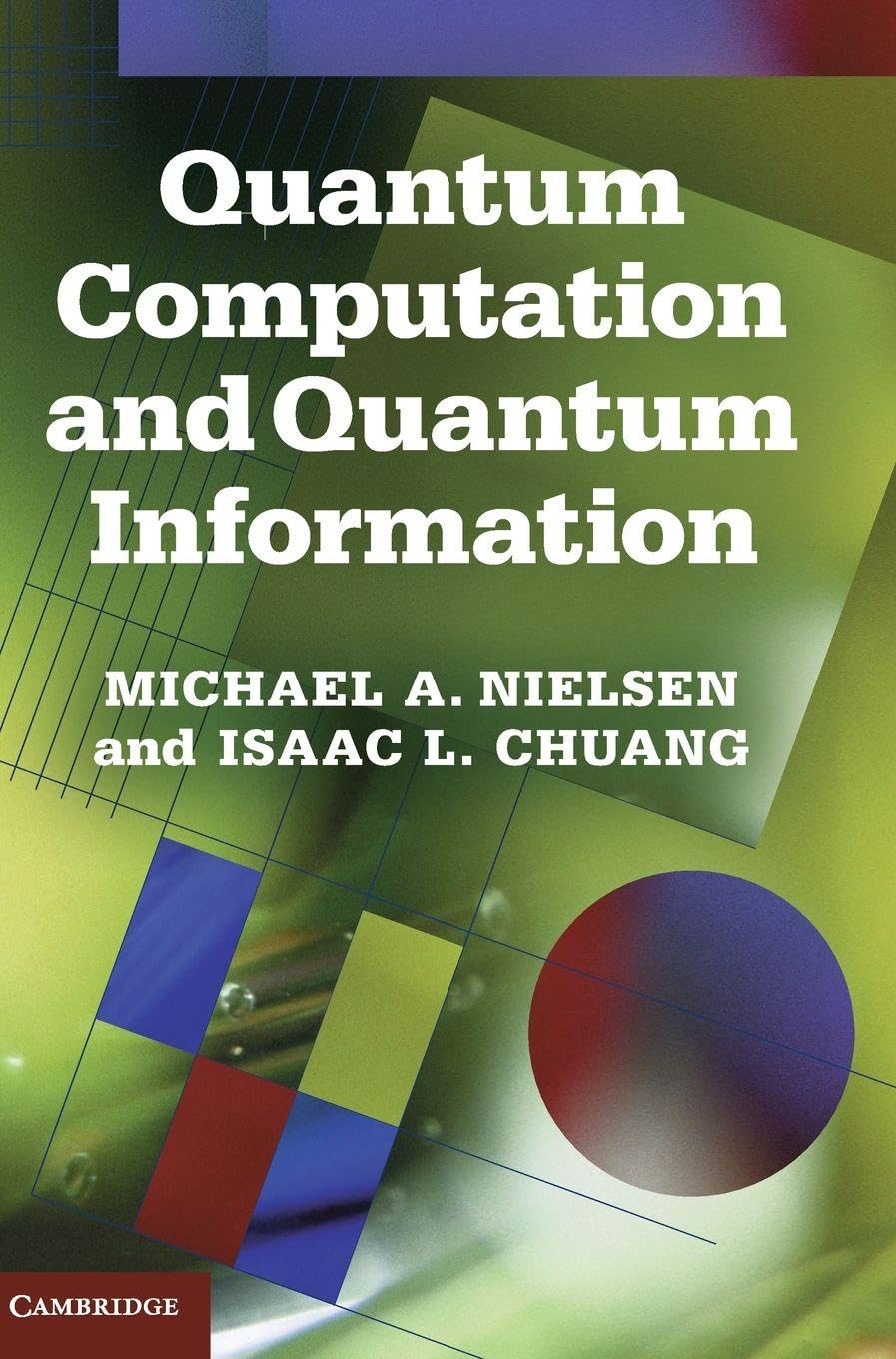is the standard reference. It is well written and light if you have the math background (linear algebra + probability theory)
(There used to be a pdf of the textbook online at [3], but it seems to have been removed...)
Scott Aaronson's Quantum Computing Since Democritus [4] is also good, but at a more abstract level. The well-written lecture notes it's based on are on his site [5].
General quantum physics knowledge can also help, but physics-focused content tends to focus more on the calculus whereas quantum computing mostly only uses the linear algebra. I liked The Theoretical Minimum [6].
1: http://www.amazon.com/Quantum-Computation-Information-Annive...
2: https://www.youtube.com/playlist?list=PL1826E60FD05B44E4
3: http://www.johnboccio.com/research/quantum/notes/QC10th.pdf
4: http://www.amazon.com/Quantum-Computing-since-Democritus-Aar...
5: http://www.scottaaronson.com/democritus/lec1.html
6: http://www.amazon.com/Quantum-Mechanics-The-Theoretical-Mini...
If D-Wave had shown anything like that, it would be a billion dollar company well on its way to disrupting NVIDIA and Intel in HPC. Instead, after nearly 30 years since the concept and 15 years after D-Wave's founding and ~$100M of VC, it's still just an expensive toy.
https://scottlocklin.wordpress.com/category/physics/page/4/
All that said, hiring its best loyal opposition to fix that is the smartest thing I've seen Google do in a long time.
And just to end on a positive note, here's a great book on the subject that explains the promise of the technology in great detail:
http://www.amazon.com/Quantum-Computation-Information-Annive...
And here's another reason perhaps why Google is leaning so hard on this technology:
They're probably as good a 'primer' as any, since they basically go from undergraduate quantum mechanics to quantum computing (& other topics). Should certainly make some of the basic quantum algorithms clear (e.g. Grover's).
Failing that, I think Nielsen & Chuang's textbook is really good:
http://www.amazon.com/Quantum-Computation-Information-Annive...
It's thorough, naturally, but it does zoom out from time to time.
http://neuralnetworksanddeeplearning.com/chap1.html
It'll be free online once complete, but I raised money with an Indiegogo campaign (about 10k). I'm self-publishing, in part because I wanted full control over the book. This gives me the ability to experiment with in-text videos, and with other tricks. For instance, when a reader clicks on an equation reference in the text, the relevant equation appears in the margin, as a reminder. Clicking on the marginal equation will take you to the context in which the equation originally appeared. This cuts down on tedious back-and-forth.
My two earlier books were both published in the traditional way:
+ A book for general audiences about networked science, "Reinventing Discovery: the New Era of Networked Science": http://www.amazon.com/dp/0691160198 Published by Princeton University Press.
+ A textbook about quantum computing, jointly with Ike Chuang: http://www.amazon.com/Quantum-Computation-Information-Annive... Published by Cambridge University Press. No e-book at all when first published (2000)!
Both were written with LaTeX, and included many illustrations. "Reinventing Discovery" was actually rekeyed entirely by the publisher, but the textbook was produced from our LaTeX copy.

